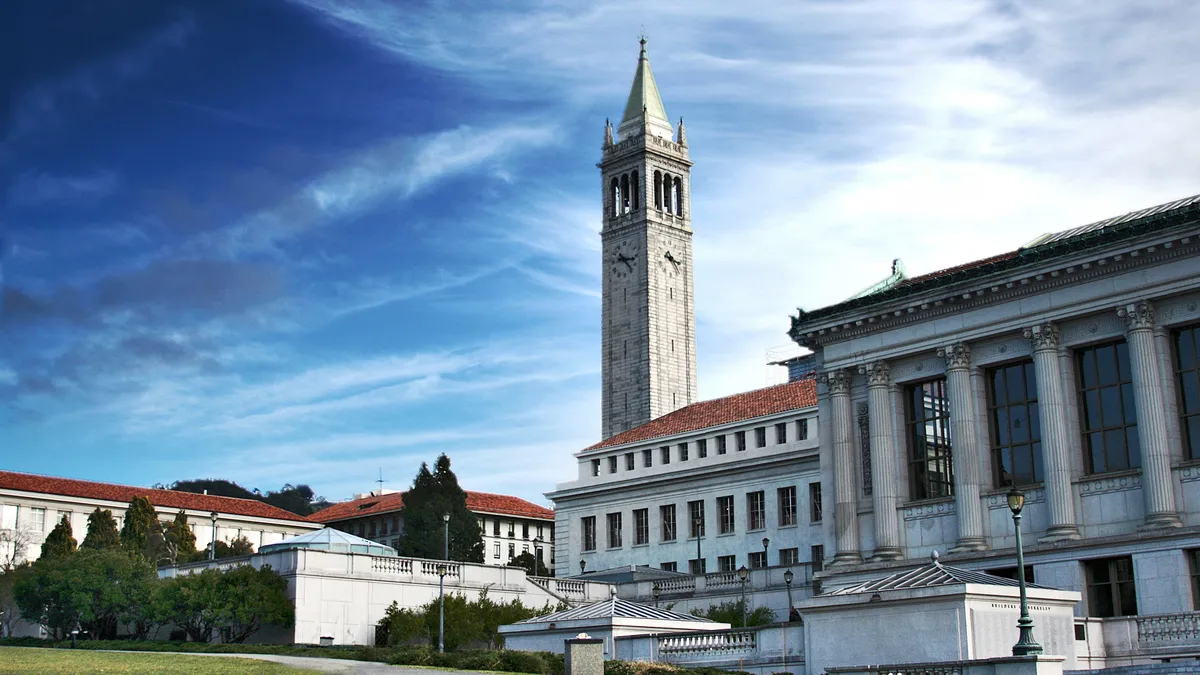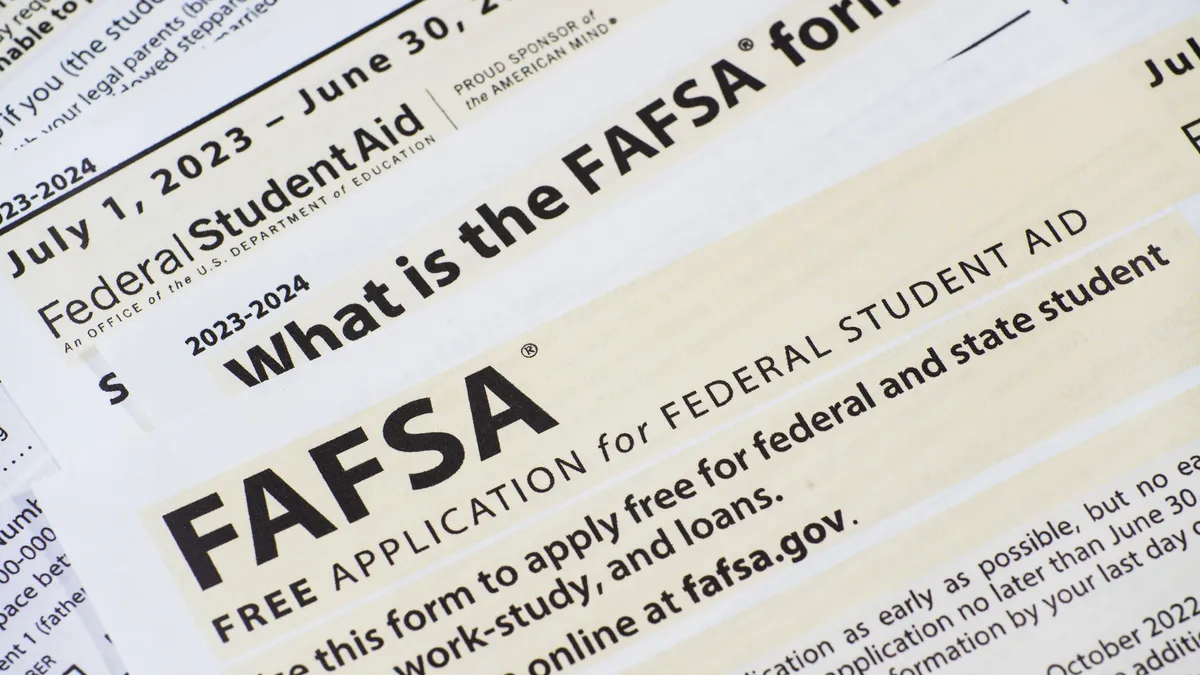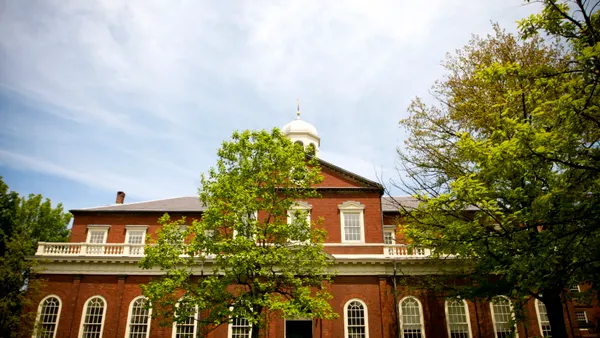Dive Brief:
-
California Gov. Gavin Newsom this week proposed guaranteed admission to the state's four-year universities for certain community college graduates.
-
Starting in 2023, first-time, first-year community college students would be able to select either a California State University or University of California campus to reserve spots for them.
-
The plan is meant to increase transfer rates to four-year schools, but California could run into capacity issues, experts said.
Dive Insight:
Participating students will have access to campus services, such as counseling and the library, at the public university closest to them and at their community college.
To remain eligible for guaranteed admission, students would have to graduate with an associate degree or its equivalent within two years. Universities that don't have room will be able to establish additional admissions criteria, such as GPA requirements.
The policy also asks CSU and UC schools to provide students with provisional financial aid letters indicating the aid package they may receive upon transferring.
Tyler Wu, the California policy director at uAspire, a college affordability advocacy group, lauded that move. "A huge core issue of ours is to make sure that students are aware of their financial aid options as they go through that transfer journey," Wu said.
Newsom bills the pitch in part as a way to increase transfer rates from California's community colleges to its four-year schools. Around one in four of the state's students who say they want to transfer do so within six years, according to a report last year from the Public Policy Institute of California.
Nationwide, 14% of students who started at a community college in fall of 2013 earned a bachelor's degree within six years, according to data from the National Student Clearinghouse Research Center.
California wouldn't be the first state with a guaranteed admission program. Texas implemented a policy in 1998 that promises in-state applicants who graduate in the top 10% of their high school class admission to any of the state's universities. The Top Ten Percent rule brought in more students from schools with high shares of underrepresented and low-income populations, a working paper found last year.
Many states also guarantee that community college students who complete an associate degree can transfer all their credits to a four-year university. More than 30 states have such policies, though the requirements vary, according to the Education Commission of the States.
California's proposal, however, could put further strain on the state's public colleges, said Nathan Daun-Barnett, a higher education professor at the State University of New York at Buffalo. California's four-year institutions are expected to turn away roughly 144,000 qualified students each year by 2030, according to a 2019 report from the College Futures Foundation.
"I would think that Berkeley would have a tough time, UCLA would have a tough time," Daun-Barnett said. "Even a couple of the others would have a tough time accommodating everybody who choose that institution."












